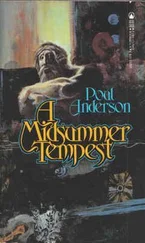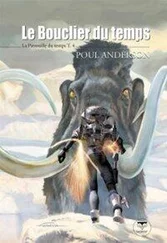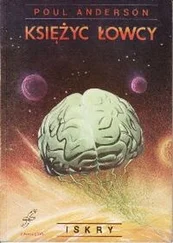Poul Anderson - No Truce with Kings
Здесь есть возможность читать онлайн «Poul Anderson - No Truce with Kings» весь текст электронной книги совершенно бесплатно (целиком полную версию без сокращений). В некоторых случаях можно слушать аудио, скачать через торрент в формате fb2 и присутствует краткое содержание. Жанр: Фантастика и фэнтези, на английском языке. Описание произведения, (предисловие) а так же отзывы посетителей доступны на портале библиотеки ЛибКат.
- Название:No Truce with Kings
- Автор:
- Жанр:
- Год:неизвестен
- ISBN:нет данных
- Рейтинг книги:3 / 5. Голосов: 1
-
Избранное:Добавить в избранное
- Отзывы:
-
Ваша оценка:
- 60
- 1
- 2
- 3
- 4
- 5
No Truce with Kings: краткое содержание, описание и аннотация
Предлагаем к чтению аннотацию, описание, краткое содержание или предисловие (зависит от того, что написал сам автор книги «No Truce with Kings»). Если вы не нашли необходимую информацию о книге — напишите в комментариях, мы постараемся отыскать её.
No Truce with Kings — читать онлайн бесплатно полную книгу (весь текст) целиком
Ниже представлен текст книги, разбитый по страницам. Система сохранения места последней прочитанной страницы, позволяет с удобством читать онлайн бесплатно книгу «No Truce with Kings», без необходимости каждый раз заново искать на чём Вы остановились. Поставьте закладку, и сможете в любой момент перейти на страницу, на которой закончили чтение.
Интервал:
Закладка:
Danielis hesitated to break into the meditation. He wondered what practical purpose the Philosopher was serving on this trip. To bring back a report, more accurate than untrained senses and undisciplined emotions could prepare? Yes, that must be it. The Espers might yet decide to take a hand in this war. However reluctantly, Central had allowed the awesome psi powers to be released now and again, when the Order was seriously threatened; and Judge Fallon was a better friend to them than Brodsky or the earlier Senate of Bossmen and House of People’s Deputies had been.
The horse stamped and blew out its breath in a snort. Woodworth glanced back at the rider. “If you ask me, though,” he said, “I don’t reckon you’ll find much doing around here. I was in the Rangers myself, back home, before I saw the Way. This country feels empty..”
“If we could know!” Danielis exploded: “They’ve had the whole winter to do what they liked in the mountains, while the snow kept us out. What scouts we could get in reported a beehive—as late as two weeks ago. What have they planned?”
Woodworth made no reply.
It flooded from Danielis, he couldn’t stop, he had to cover the recollection of Laura bidding him good-by on his second expedition against her father, six months after the first one came home in bloody fragments:
“If we had the resources! A few wretched little railroads and motor cars, a handful of aircraft; most of our supply trains drawn by mules—what kind of mobility does that give us? And what really drives me crazy ... we know how to make what they had in the old days. We’ve got the books, the information. More, maybe, than the ancestors. I’ve watched the electrosmith at Fort Nakamura turn out transistor units with enough bandwidth to carry television, no bigger than my fist. I’ve seen the scientific journals, the research labs, biology, chemistry, astronomy, mathematics. And all useless!”
“Not so,” Woodworth answered mildly. “Like my own Order, the community of scholarship’s becoming supranational. Printin’ presses, radiophones, telescribes—”
“I say useless. Useless to stop men from killing each other because there’s no authority strong enough to make them behave. Useless to take a farmer’s hands off a horse-drawn plow and put them behind the wheel of a tractor. We’ve got the knowledge, but we can’t apply it.”
“You do apply it, son, where too much power and industrial plant isn’t required. Remember, the world’s a lot poorer in natural resources than it was before the Hellbombs. I’ve seen the Black Lands myself, where the firestorm passed over the Texas oilfields.” Woodworth’s serenity cracked a little. He turned his eyes back to the peaks.
“There’s oil elsewhere,” Danielis insisted. “And coal, iron, uranium, everything we need. But the world hasn’t got the organization to get at it. Not in any quantity. So we fill the Central Valley with crops that’ll yield alcohol,, to keep a few motors turning; and we import a dribble of other stuff along and unbelievably inefficient chain of middlemen; and most of it’s eaten by the armies.” He jerked his head toward that part of the sky which the handmade airplane had crossed. “That’s one reason we’ve got to have Reunification. So we can rebuild.”
“And the other?” Woodworth asked softly.
“Democracy—universal suffrage—” Danielis swallowed. “And so fathers and sons won’t have to fight each other again.”
“Those are better reasons,” Woodworth said. “Good enough for the Espers to support. But as for that machinery you want—” He shook his head. “No, you’re wrong there. That’s no way for men to live.”
“Maybe not,” Danielis said. “Though my own father wouldn’t have been crippled by overwork if he’d had some machines to help him ... Oh, I don’t know. First things first. Let’s get this war over with and argue later.” He remembered the scout, now gone from view. “Pardon me, Philosopher, I’ve got an errand.”
The Esper raised his hand in token of peace. Danielis cantered off.
Splashing along the roadside, he saw the man he wanted, halted by Major Jacobsen. The latter, who must have sent him out, sat mounted near the infantry line. The scout was a Klamath Indian, stocky in buckskins, a bow on his shoulder. Arrows were favored over guns by many of.the men from the northern districts: cheaper than bullets, no noise, less range but as much firepower as a bolt-action rifle. In the bad old days before the Pacific States had formed their union, archers along forest trails had saved many a town from conquest; they still helped keep that union loose.
“Ah, Captain Danielis,” Jacobsen hailed. “You’re just in time. Lieutenant Smith was about to report what his detachment found out.”
“And the plane,” said Smith imperturbably. “What the pilot told us he’d seen from the air gave us the guts to go there and check for ourselves.”
“Well?”
“Nobody, around.”
“What?”
“Fort’s been evacuated. So’s the settlement. Not a soul.”
“But—but—” Jacobsen collected himself. “Go on.”
We studied the signs as best’s we could. Looks like non-combatants left some time ago. By sledge and ski, I’d guess, maybe north to some strong point. I suppose the men shifted their own stuff at the same time, gradual-like, what they couldn’t carry with ’em at the last. Because the regiment and its support units, even field artillery, pulled out just three-four days ago. Ground’s all tore up. They headed downslope, sort of west by northwest, far’s we could tell from what we saw.“
Jacobsen choked. “Where are they bound?”
A flaw of wind struck Danielis in the face and ruffled the horses’ manes. At his back he heard the slow plop and squish of boots, groan of wheels, chuff of motors, rattle of wood and metal, yells and whipcracks of muleskinners. But it seemed very remote. A map grew before him, blotting out the world.
The Loyalist Army had had savage fighting the whole winter, from the Trinity Alps to Puget Sound—for Brodsky had managed to reach Mount Rainier, whose lord had furished broadcasting facilities, and Rainier was too well fortified to take at once. The bossmen and the autonomous tribes rose in arms, persuaded that a usurper threatened their damned little local privileges. Their protectees fought beside them, if only because no rustic had been taught any higher loyalty than to his patron. West Canada, fearful of what Fallon might do when he got the chance, lent the rebels aid that was scarcely even clandestine.
Nonetheless, the national army was stronger: more matérial, better organization, above everything an ideal of the future. Cinc O’Donnell had outlined a strategy—concentrate the loyal forces at a few points, overwhelm resistance, restore order and establish bases in the region, then proceed to the next place—which worked. The government now controlled the entire coast, with naval units to keep an eye on the Canadians in Vancouver and guard the important Hawaii trade routes; the northern half of Washington almost to the Idaho line; the Columbia Valley; central California as far north as Redding. The remaining rebellious Stations and towns were isolated from each other in mountains, forests, deserts. Bossdom after bossdom fell as the loyalists pressed on, defeating the enemy in detail, cutting him off from supplies and hope. The only real worry had been Cruikshank’s Sierra Command, an army in its own right rather than a levy of yokels and citymen, big and tough and expertly led. This expedition against Fort Nakamura was only a small part of what had looked like a difficult campaign.
But now the Rolling Stones had pulled out. Offered no fight whatsoever. Which meant that their brother Catamounts must also have evacuated. You don’t give up one anchor of a line you intend to hold. So?
Читать дальшеИнтервал:
Закладка:
Похожие книги на «No Truce with Kings»
Представляем Вашему вниманию похожие книги на «No Truce with Kings» списком для выбора. Мы отобрали схожую по названию и смыслу литературу в надежде предоставить читателям больше вариантов отыскать новые, интересные, ещё непрочитанные произведения.
Обсуждение, отзывы о книге «No Truce with Kings» и просто собственные мнения читателей. Оставьте ваши комментарии, напишите, что Вы думаете о произведении, его смысле или главных героях. Укажите что конкретно понравилось, а что нет, и почему Вы так считаете.











